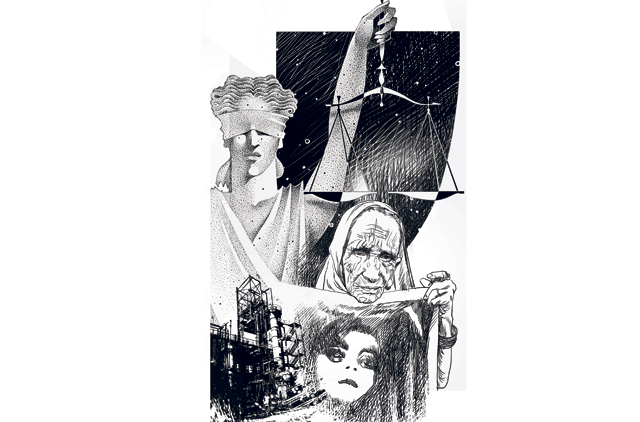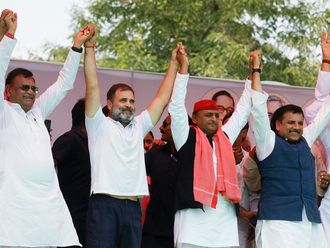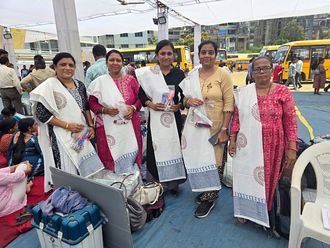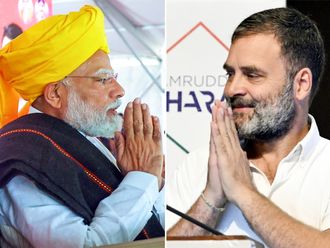
A quarter of a century after the world's most horrific industrial disaster — the Bhopal gas-leak tragedy — unfolded in India's central state of Madhya Pradesh, an Indian court has tried to bring closure to the incident by delivering an outrageous verdict.
On that fateful night of December 2 and in the early hours of December 3, 1984, when a deadly cocktail of methyl isocyanate and sundry lethal gases spewed out of Union Carbide Corporation's (UCC) now defunct pesticide plant, over 3,500 people were asphyxiated instantly to death and thousands others were maimed for life. In the ensuing weeks, 15,250 more people who had inhaled the noxious gas or consumed contaminated water breathed their last.
It is said that the full impact of the gases unleashed on Bhopal's residents was so disastrous that it may never be fully assessed by science. The fact that, 26 years after the fiasco, chemicals can still be traced in the milk of lactating women in Bhopal is illustrative of the scale of this monumental human tragedy.
Shockingly, despite the disaster's magnitude, the Indian judiciary has awarded a meagre sentence of just two years' imprisonment for causing "death by negligence" to the convicted former Union Carbide India Limited Chairman Keshub Mahindra and seven other senior Indian executives. Worse, all seven applied for — and were granted — bail immediately after their sentencing on Monday.
Apart from the grossly inadequate quantum of punishment, what rankles Indians most is the fact that the case's chief accused — Warren Anderson, now 89, the erstwhile UCC chairman at the Bhopal plant — is still at large. The former UCC honcho — currently living on Long Island in a luxury villa — has skilfully evaded arrest despite two warrants being issued against him, the last in July 2009.
As if this injustice wasn't enough, the victims and their families had earlier received compensation of just Rs75,000 (Dh5,864) for each person who died and about Rs25,000 for the injured. This was in 1999, after the Indian government had received a payment of $470 million (Dh1.7 billion) — negotiated down from $3 billion — in a protracted out-of-court settlement with Union Carbide.
When livid activists pushed The Dow Chemical Company, of which Union Carbide became a subsidiary in 1999, for more compensation, it washed its hands of the case, saying "all the liabilities were settled when the company paid the compensation in a settlement brokered by the Indian Supreme Court".
Breakdown
In other words, the Bhopal disaster verdict has failed the Indian people on every count. From the investigating agencies to the politicians to the corporate sector to the judiciary, there is an overwhelming feeling that all agencies have given short shrift to the hapless victims. There has thus been a most unfortunate conclusion to the Bhopal saga.
Indeed, talk of sustainable development, environmental issues and human rights sounds hollow in the absence of justice for the victims of the tragedy. This shockingly lenient ruling gives the unfortunate impression to the global community that it is easy for foreign investors to literally get away with murder in India. This may well set an unhealthy precedent, with big foreign companies believing they can operate with little accountability in the country.
Incomplete legislation
It seems that the lack of strong liability laws in India means that errant companies can buy their way out of major disasters cheaply. Therefore, there is an urgent need to craft a strong legal framework to ensure that industrial accidents are handled in the most responsible manner.
A judgment of this magnitude, involving a high-profile corporation, has the potential to shape the policies of big business in India. More stringent laws are needed to cope with environmental disasters and industries that routinely deal with hazardous substances. This has become even more urgent with the proliferation of nuclear power plants across vast swathes of the country.
The mistakes made in the aftermath of the Bhopal disaster are being repeated in the Civil Liability for Nuclear Damage Bill, introduced by the Indian government in parliament in November. The Bill sets a limit on the compensation to be paid in the case of an accident at a nuclear site and places responsibility for paying this compensation on the operator, and not the suppliers or foreign companies that install the reactors in India.
The Bill limits the civil liability of any company running a nuclear power plant to Rs5 billion (Dh391 million) per accident, with an overall cap of roughly Rs21 billion (Dh1.6 billion), and also exonerates the international companies that supplied the equipment and technology.
The Bhopal judgment is also likely to have implications for India's geo-strategic position vis a vis the US. There was already a sense of disquiet about the Bhopal disaster within the Obama administration and this verdict, which has incensed so many in India, is particularly sensitive at a time when Washington is contemplating pressing charges against British Petroleum for the oil spill off the Louisiana coast, which claimed 11 lives.
The Union Carbide case will continue as the victims and their families plan to appeal. Be that as it may, this verdict should hold valuable lessons for the Indian authorities. It proves that governmental neglect, coupled with judicial apathy, is the perfect recipe for disaster. The entire episode is a grim reminder of the avoidable and exorbitant price that ordinary and unsuspecting people have to pay for the state's inefficiency and callousness.
All eight of the Indian defendants in the Union Carbide case were found guilty, but this is of little comfort to the thousands who have suffered in Bhopal. More than 2o,ooo people were killed, and their lives have been valued at 55 cents each. Meanwhile, the former chairman of the US company refuses to appear in an Indian court.
Neeta Lal is a New Delhi-based journalist.








